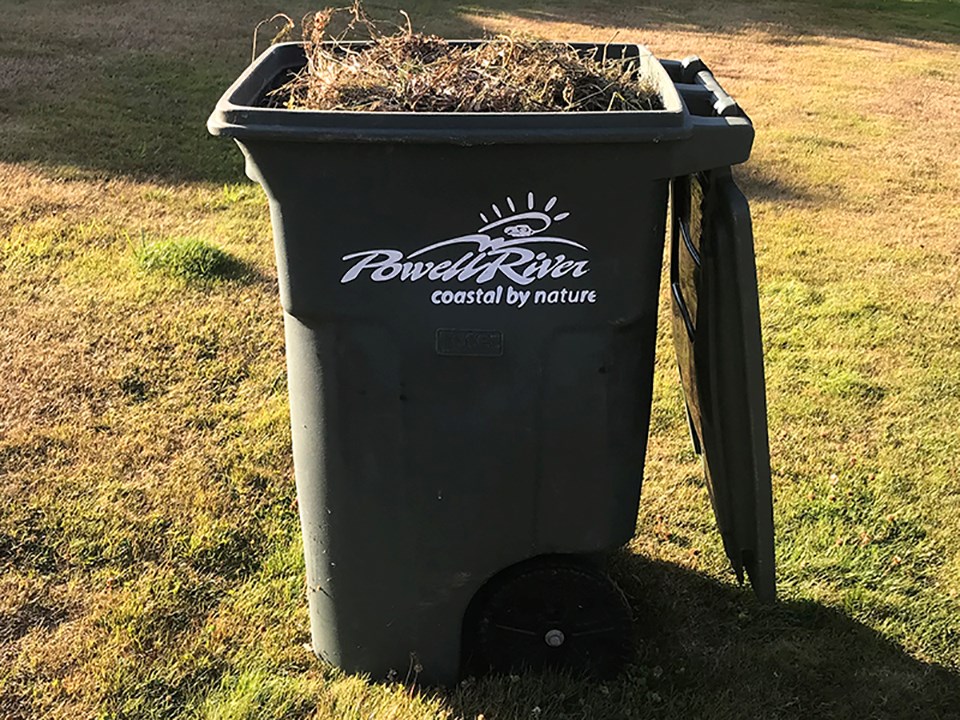qathet Regional District board will refer the matter of developing a regional organics waste diversion strategy to the solid waste management plan advisory committee.
At the November 22 committee of the whole meeting, Electoral Area B director Mark Gisborne brought forward the motion for staff to be directed to create a report on the feasibility of developing a regional organics waste diversion strategy, indicating there had been a lot of discussion regarding organic waste.
“It’s a growing issue in our community and I am hearing all kinds of concerns,” said Gisborne. “Initially, there is this idea to consolidate all our organic waste and deal with it locally.”
Gisborne said he spoke to some other regional district representatives at the Union of British Columbia Municipalities convention in September, looking at other districts’ waste diversion strategies. He said this is something the Let’s Talk Trash team can help with.
“This is asking for a report on the feasibility of developing such a strategy,” said Gisborne. “I don’t know how much work it would be to create such a strategy but hopefully a staff report will come back with whether it would be an onerous thing. Organics is a pressing issue.”
Manager of asset management and strategic initiatives Arnold Schwabe said this was previously discussed and a report on organics diversion was referenced, and it was from the Kootenays. Schwabe said he read the report.
“That appeared to be primarily on the state of solid waste in that region and the idea from that report was that organics should be diverted from the regular waste stream,” said Schwabe. “We did go through a solid waste management plan back in 2015 or 2016 and everyone involved – the report consultants, staff and the public – did an excellent job of stressing the importance of diverting organics.
“I like to think we are past the stage of some of the planning and discussion and we have a bit of a strategy moving forward. Our recent struggles seem to be around the complexities of siting and execution, and that’s something we’re hoping we can resolve.”
Schwabe said the regional district’s 10-year solid waste plan is set to expire in 2027, at which point, a new one will be required.
“We are likely to start this process again in 2024 or 2025,” said Schwabe. “Any plan like this usually takes a few years. Public consultation is time consuming and expensive. At the time of our next solid waste management plan, I have two suggestions. We could either provide a separate organics strategy as part of the process or we could have a more detailed organics plan as part of that process.”
Schwabe said something like that rather than having a whole process outside of it would make more sense.
Curbside collection
City of Powell River director Cindy Elliott said the city had plans to roll out curbside collection of organics for the entire city this year. She said she understands the current capacity to handle that isn’t there and that the plan Schwabe spoke of would have included the city rolling that out. She asked if it was possible for the city to move forward under current capacity.
Schwabe said he had discussions with city staff regarding rolling an organics program out and that questions around capacity have been asked. He added that if capacity was there to expand the current pilot project system, there would be more cost because of increased volumes. He said the idea, once the resource-recovery centre and waste-transfer site is in place, is that it has the capacity to take all the organics from the city curbside collection.
City director George Doubt said he liked the suggestion that Schwabe brought up, which was different from the direction in the motion.
“We have a lot of things going on,” said Doubt. “The process of trying to find an operator who would create a centralized composting facility hasn’t been completed yet, but it’s in the process. Deferring investigations with what to do with the remainder of the organics, or what to do about distributing it and processing it more widely, would be better left until later.”
Doubt said he would vote against the motion.
Gisborne said deferring the matter might be the best solution in terms of cost effectiveness. He said the reason he put this item on the agenda isn’t so much about cost effectiveness, but has to do with bears. He said there have been a lot of bears getting into garbage and in his electoral district, a lot of bears have been destroyed.
Elliott recommended the motion for a staff report be defeated and that all the input be forwarded to Schwabe to put into his planning process. Schwabe said the recommendations could be integrated into the planning process for the new solid waste management plan development.
Electoral Area E director Andrew Fall brought forward a motion to defer for a year but the motion failed.
The committee carried a motion instead to recommend to the regional board that it refer the matter to the solid waste management plan advisory committee.
Join the Peak's email list for the top headlines right in your inbox Monday to Friday.



